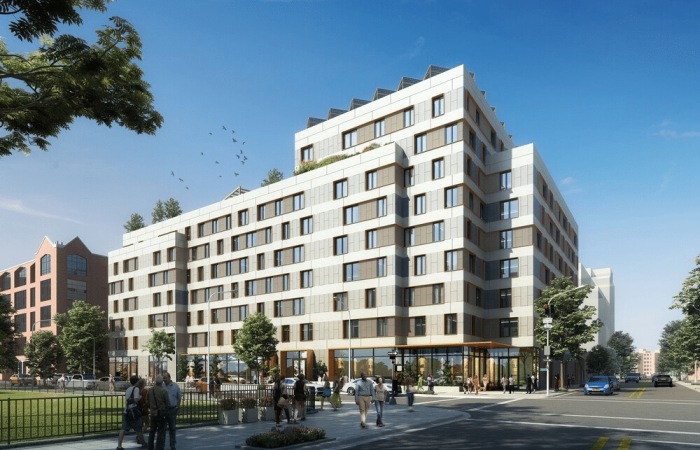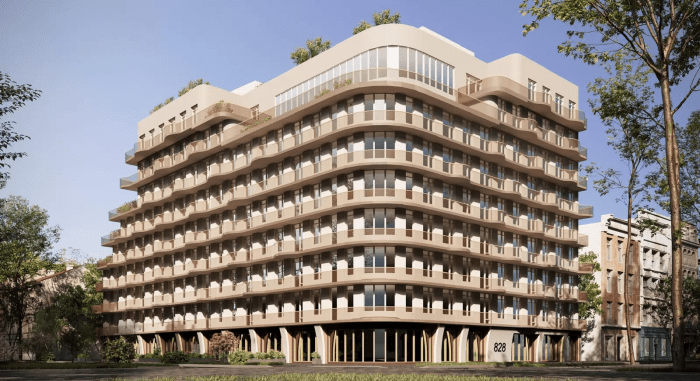There is no room for the inn!
Hotels pushed job-creating factories out of Williamsburg, claims Mayor DeBlasio, and now he is erecting bureaucratic barriers will make it harder for developers to open them in other industrial areas.
“In the space of just a few years, businesses supporting thousands of jobs were lost to developers,” said DeBlasio said at a press conference announcing his new plans on Tuesday. “We have to stop that kind of undermining of our industrial businesses, and this plan will end that negative trend.”
Under Hizzoner’s scheme, developers will have to obtain a special permit to build hotels as well as self-storage facilities in the city’s so-called Industrial Business Zones — designated areas that are intended for what it says on the tin, which include the Brooklyn Navy Yard, around Avenue D in Canarsie, the Sunset Park and Red Hook waterfronts, the Newtown Creek side of Greenpoint and Williamsburg, and the land between McCarren Park and the waterfront in Williamsburg.
Currently, hoteliers and storage companies can open outposts in the zones with minimal red tape, and the mayor claims those businesses are pricing out industrial companies, who then leave the city seeking cheaper real estate elsewhere.
Nabbing a special permits requires community consultation and the approval of the Council, which just last year released a report slamming the effect the lax laws have had on Williamsburg’s industrial zone in particular. The area was 100-percent blue collar a decade ago, but is now filled with the boutique hotels, hip nightclubs, and retail stores — which create far fewer jobs and offer lower wages, it said.
DeBlasio claims his plan — which the city planning department still needs to okay — will create 20,000 manufacturing jobs around the five boroughs.
Industrial businesses say they do indeed still want the buildings, they just can’t compete on price. One industry honcho said his company recently lost out on a plot of land to a mini-storage outfit with more money, and he is optimistic the new policy will help prevent this happening again in the future.
“The initiatives will go a long way to help us accomplish our goals,” said Brian Coleman, chief executive of the Greenpoint Manufacturing and Design Center, which renovates derelict factories rents space in them to small manufacturers.
But the new restrictions may not go far enough — developers will still be able to build retail and office spaces in industrial zones without a permit, and may still out-bid factories for the land, said a real estate expert.
“I don’t think the market is going to drop off that much, but it does eliminate two large buyer pools,” said Jim McGuckin, who specializes in industrial properties for brokerage Marcus and Millichap.
DeBlasio’s proposal does attempt to address the industry’s need for funds, however — he is pledging to create a $150 million loan and grant fund for fledgling industrial businesses and a new manufacturing center to house start-ups, while his current capital plan assigns hundreds of millions for building new properties in the Navy Yard, Brooklyn Army Terminal, and Sunset Park.
























